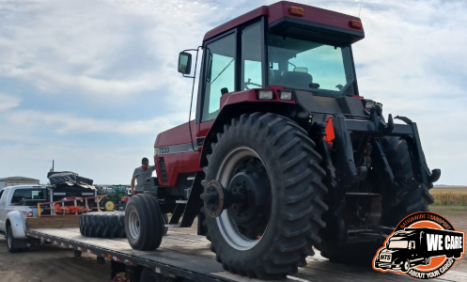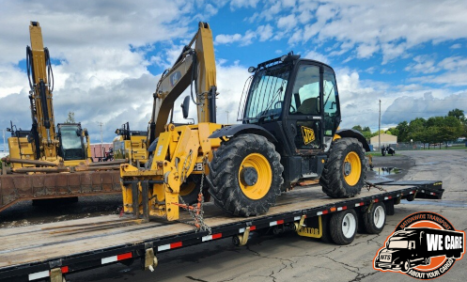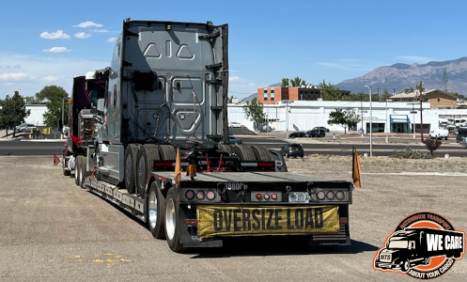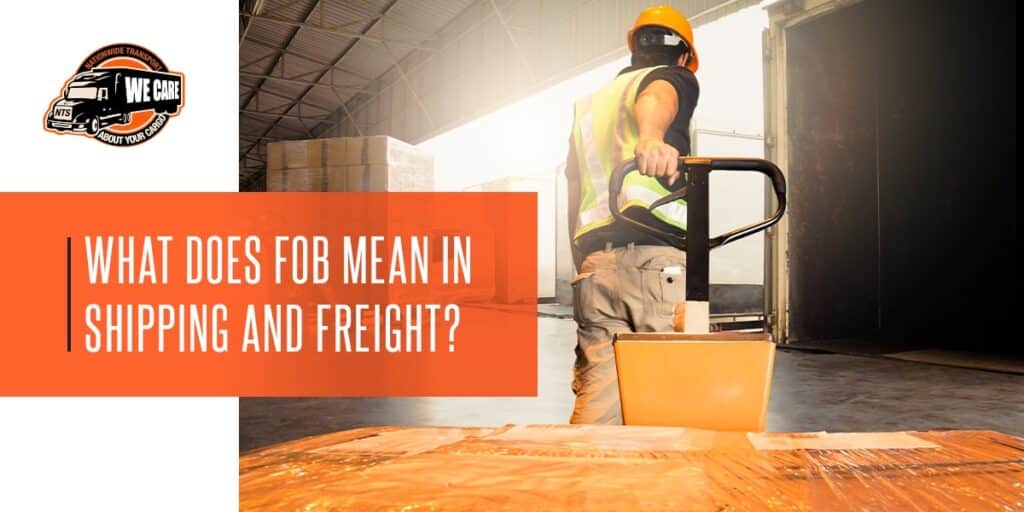
- What is FOB used For?
- FOB as an Incoterm
- Ways FOB Is Used in Shipping
- What Is the Difference Between FOB and CIF?
- The Differences Between FOB and CFR
- FOB vs. FAS
- Request a Quote From Nationwide Transport Services
Shipping packages involves a lot of moving parts. That’s why it’s important for every party involved to know what they are responsible for in a shipping agreement. When everyone knows their roles, rights and responsibilities, product shipments can go smoothly. Even if a problem arises, having these roles in order can only help the situation and next actions.
When entering a shipping arrangement, understand the Free on Board (FOB) option. FOB describes a particular shipping arrangement between sellers and buyers. Learn the essential FOB terms below to get a fuller understanding of FOB and its processes.
What Is FOB Used For?
The main purpose of FOB is to define the responsibilities of the buyer and seller in a transaction that involves the shipment of a good overseas. Both parties use FOB to know when their responsibilities start and end while clearly communicating the responsibilities of the other party at the same time. In FOB arrangements, the seller must get the purchased goods onto the shipping vessel that will bring the goods to the buyer.
Buyers and sellers use FOB in their shipping agreements to streamline the process and help settle any legal matters that could arise as a result of the shipping process itself. With FOB, both parties will know who has financial responsibility for the product at specific points in the shipping timeline, after the seller has successfully brought the goods to the FOB shipping point.
FOB as an Incoterm
The International Chamber of Commerce (ICC) publishes new sets of Incoterms rules every decade or so to govern trade terms among nations. These rules help determine how the parties involved allocate risks and costs in various international transactions. ICC published the latest set of Incoterms rules in 2020, and they include the latest definitions for FOB Incoterms.
Incoterms provide a clear outline for buyers and sellers to know who does what in a shipping transaction, as well as who pays for the costs of shipping. Without these defined outlines, shipping items across international waters to foreign destinations would be unpredictable if an unforeseen event got in the way. With Incoterms like FOB, the entire process is clearer and easier to follow, both financially and legally.
Ways FOB Is Used in Shipping
FOB takes four different forms in shipping agreements:
- FOB Origin, Freight Prepaid
- FOB Origin, Freight Collect
- FOB Destination, Freight Prepaid
- FOB Destination, Freight Collect
Every FOB designation contains two sides. The first either states “place of origin” or “place of destination.” The second bit of information will either say ”Freight Prepaid” or “Freight Collect.” The particular combination of these two pieces of information helps you understand the responsibilities and financial risks of the two parties involved. They also tell the carrier if money is due for shipment and who to contact if the goods become damaged during transit.
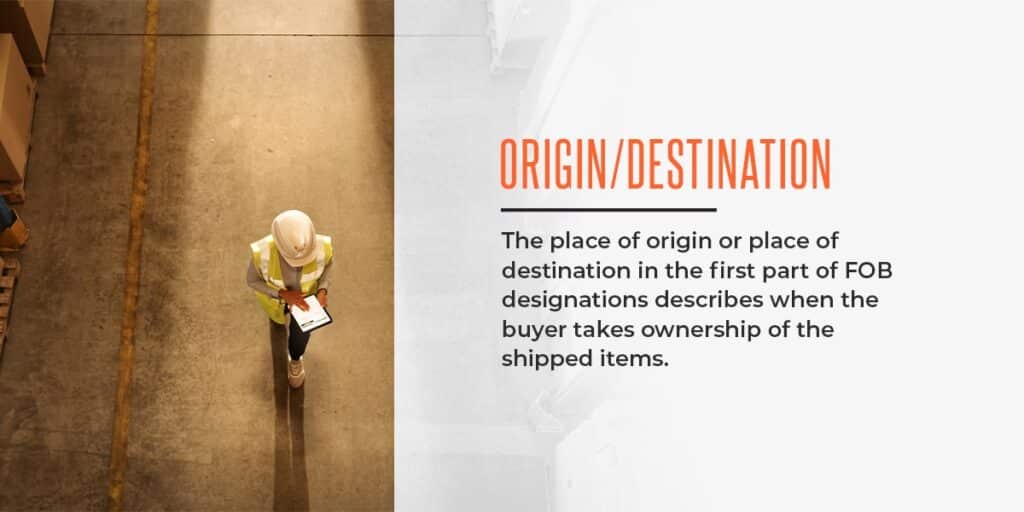
Origin/Destination
The place of origin or place of destination in the first part of FOB designations describes when the buyer takes ownership of the shipped items. For example, if the designation says “FOB [place of origin],” then the buyer of the products being shipped becomes their legal owner the moment the carrier receives the goods from the seller and signs the loading bill. “FOB origin” releases the seller from ownership and legal responsibility of the sold goods at that moment.
For the designation “FOB [place of destination],” the seller retains legal ownership of the sold products until they reach their final delivery point. The FOB destination will be the point at which the buyer receives the goods they bought. At this point, the buyer will assume all financial and legal responsibility for the products.
Note that the buyer can choose the place of origin in a FOB arrangement. This is wise, as it can influence FOB origin pricing, which is especially helpful depending on who is paying for shipping.
Collect/Prepaid
The phrases “Freight Prepaid” and “Freight Collect” refer to which party in the arrangement is paying for shipping. “Freight Prepaid” means the seller pays for shipping, so the buyer has no shipping costs to pay upon receiving their purchased goods. “Freight Collect” means the buyer is responsible for shipping costs and must pay these costs when they receive their shipped goods.
What Is the Difference Between FOB and CIF?
Another type of shipping agreement is called Cost, Insurance and Freight (CIF). Both FOB and CIF involve the international shipping of goods from seller to buyer, but they do differ regarding who is responsible for the shipped goods during transport.
In a CIF agreement, the seller must properly load the packaged goods onto the vessel, pay for the cost of shipping to the buyer’s port and pay for insurance of the products until they reach their final destination. This differs from FOB, which only includes information about where each party’s liability starts and ends as well as who is paying for shipping.
The Differences Between FOB and CFR
Cost and Freight (CFR) is a shipping agreement that states the seller has fulfilled all their required duties after they successfully deliver and load the purchased goods onto the vessel of their choosing at the specified port of shipment. This means the buyer assumes all financial risk and legal responsibility for the goods from that point on.
This type of arrangement can have its pros and cons, depending on the value of the purchased goods compared to the risks they could face during shipment.
FOB vs. FAS
A final shipping arrangement that’s different than FOB that you should know about is Free Alongside Ship (FAS). In a FAS agreement, the seller fulfills all their responsibilities by making the goods they’ve sold available alongside the vessel. They can bring the goods to the barge or quay, for instance.
The buyer chooses the location of shipment in this agreement. They’re also responsible for loading the goods, transporting them and everything else needed to get them to their final destination.
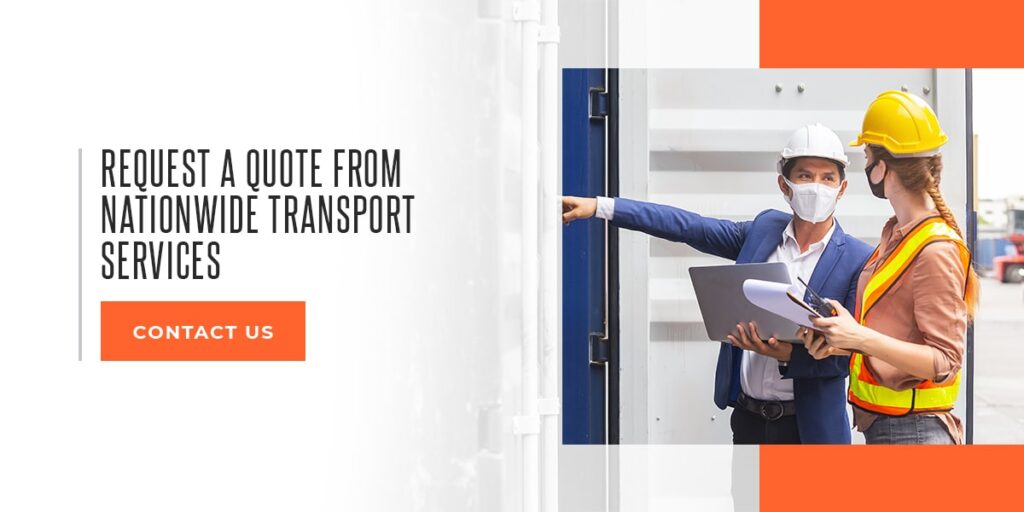
Request a Quote From Nationwide Transport Services
At Nationwide Transport Services, we care about your shipping needs. Since 2009, we’ve grown from a one-man shipping operation to one of the industry’s leading transportation logistic companies. We’re ready to help you achieve your shipping goals with our services, which include international exporting as well as freight shipping, auto transport and agriculture equipment.
Request a shipping quote online to take the next step. Or, you can contact us today for more information.
